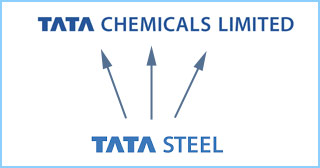Published on December 09, 2017

Critical Chain Project Management (CCPM) provides a substantial step in the on-going improvement to project management. Projects are typically managed based on critical path, the longest sequence of activities in a project to be completed on time for the project to complete on the due date.
There are a couple of assumptions made like resources are available in unlimited quantities or project tasks can be completed on the agreed upon (buffered) time. However, the reality is otherwise mostly; projects get delayed even after padding up the tasks (30% to 100%). CCPM provides a framework to tackle these uncertainties and yet complete projects on time (and therefore, within budget).
The need
The need for a CCPM framework was felt so that projects could be completed on time, organised and managed efficiently and within a stipulated budget, thus saving on costs.
Best Practice Adoption
When Tata Business Excellence Group conducted an open house at Tata Steel in 2015, the team from Tata Chemicals was intrigued by Tata Steel’s pursuit of CCPM. They wanted to learn more and made another focused visit to Tata Steel and observed their success in managing projects through CCPM, reaching world-class benchmarking in the steel industry for certain changeover lead-times, intelligently scheduling critical resources and saving more than INR 300 crores. This visit inspired Tata Chemicals to adopt this best practice and enhance their project management performance.
The CCPM deployment began with Tata Chemicals’ major engineering centre in Mithapur with an extensive five-day session including why, what and how of CCPM and creating project plans for identified projects. It began with seeking support of senior leaders and then identifying five keys projects for the first phase and nominating project leaders for the same. Subsequently the CCPM software BM3 was installed. These identified project leaders and their team then developed a detailed project plan initially on an A0 size sheet and entered the same in the BM3 software for tracking the progress of the project. For further assistance, the consultant visited the site fortnightly. Over a period of 20 weeks, these projects were reviewed on a weekly and monthly basis with the project team and leaders.
After this success and learning, Tata Chemicals implemented CCPM in their operations not only as a project management tool but also as a vehicle to help them run their critical business imperatives. CCPM was also implemented for their corporate projects.
The concept of CCPM was adopted from Tata Steel but it was customised at Tata Chemicals to suit their needs and environment.
Benefits
Tata Chemicals’ due date performance has increased from 30% to 78%. Project delays have decreased by 33%.
People involved in the implementation and beneficiaries
“Project monitoring is a key advantage of the Critical Chain Project Management. Individual tasks vary in duration from the plan/estimate, rather than trying to complete every task on time, we monitor the project buffers created during the planning stage.”
— H T Gangaramani, Head - Projects & Technical Services, Tata Chemicals
“It is the best project management philosophy and tool I have seen. We can track and review multiple project at a glance just by looking at the fever chart. It is now easier to explain to the management team where problems exist and get resources allocated in time for them to impact the project schedule.”
— Suresh Patel, Head - Cement Maintenance


